Blog
Harbor House’s Summer Literacy Program: A Personal Reflection
Share
By Jennifer Bloom, OLC Director of Programs
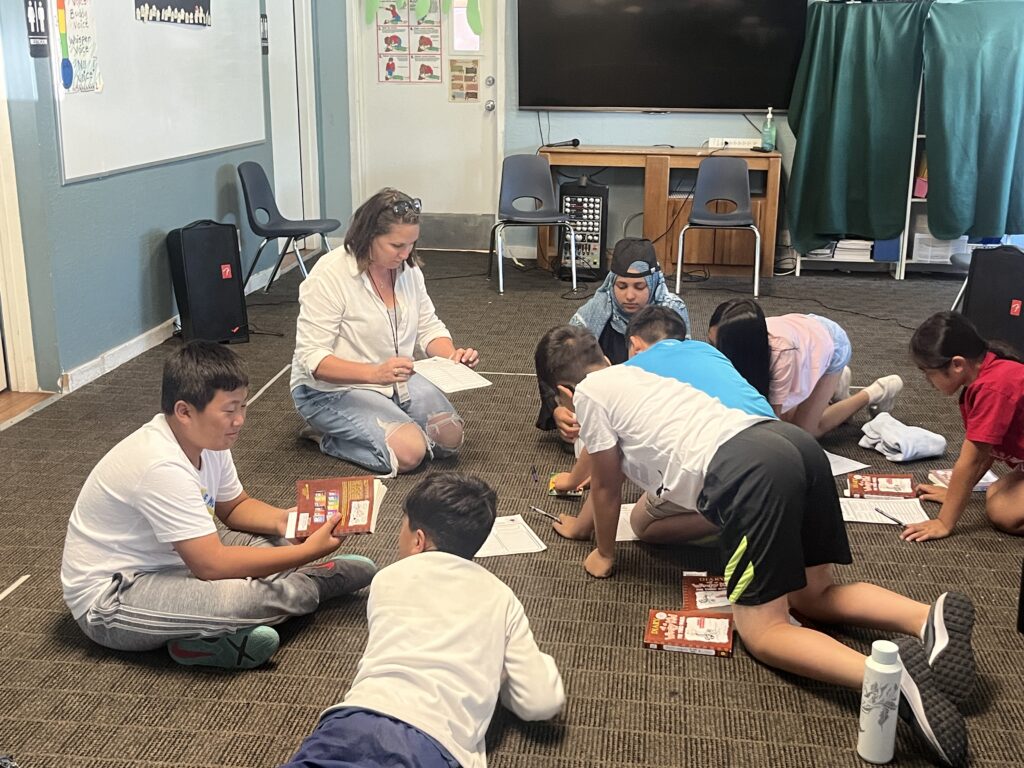
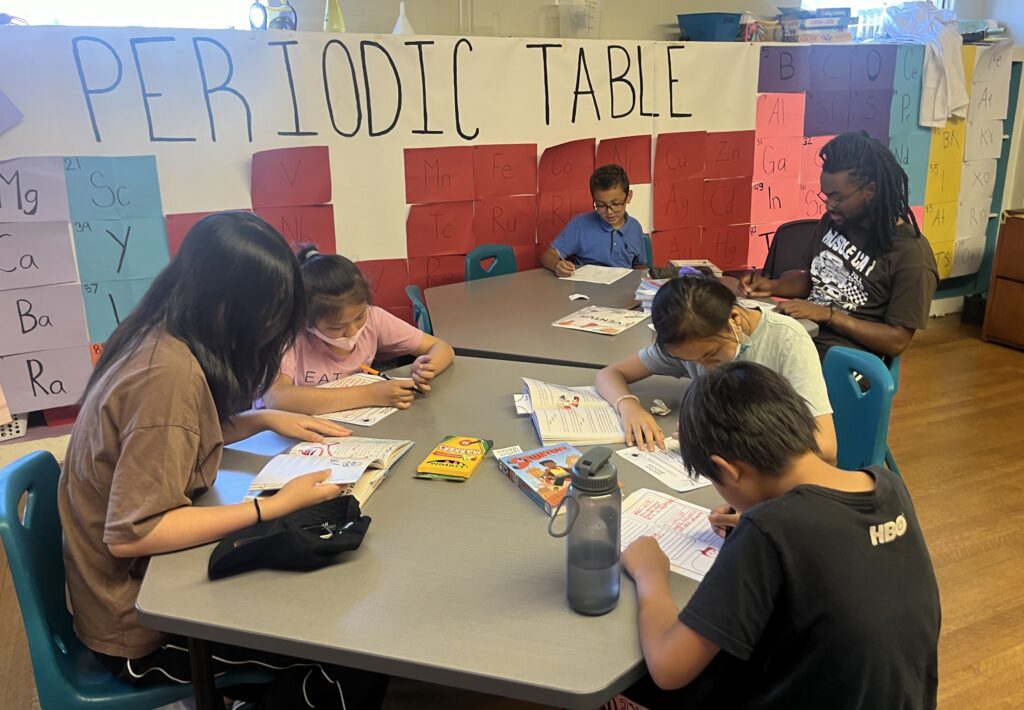

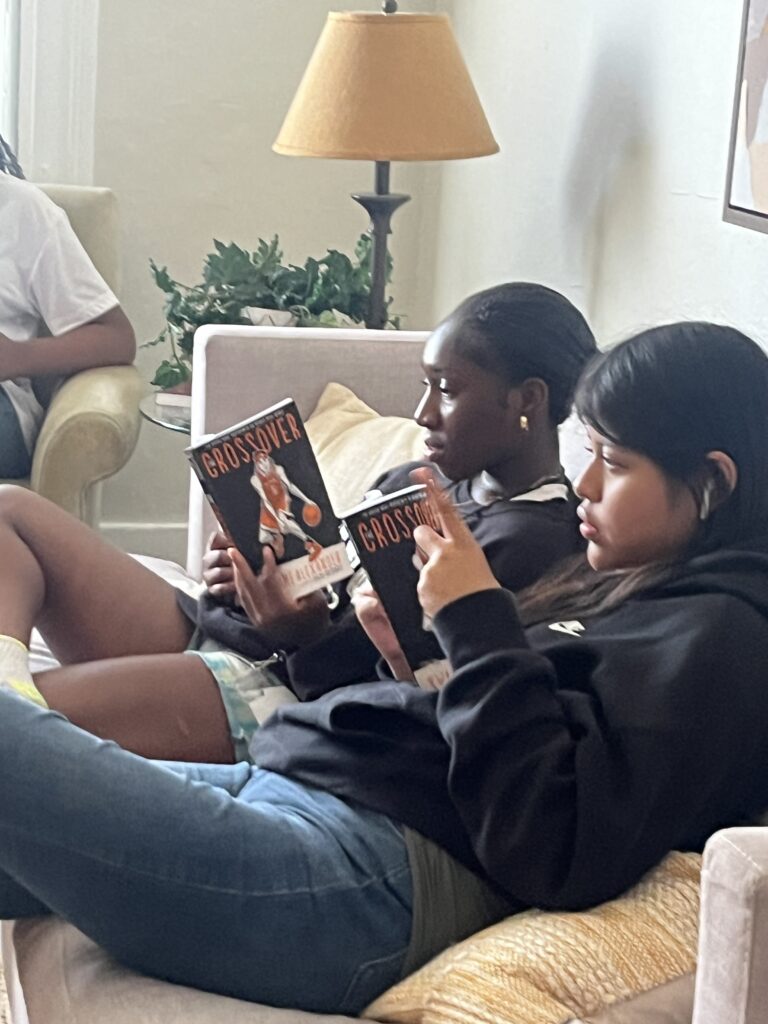
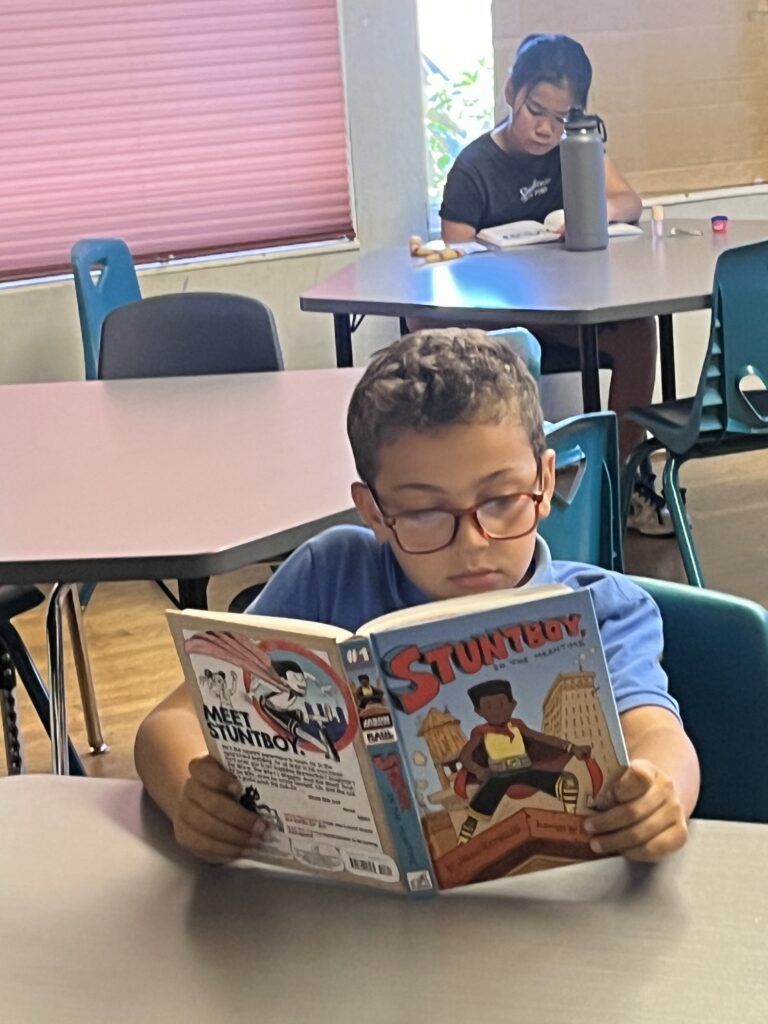
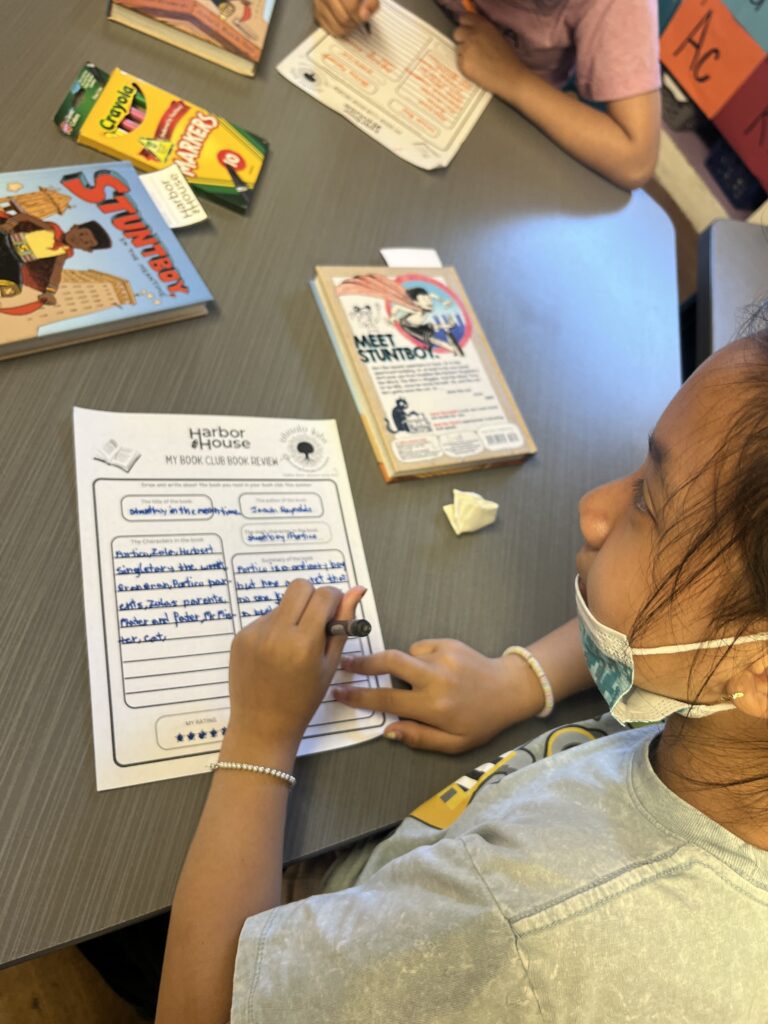
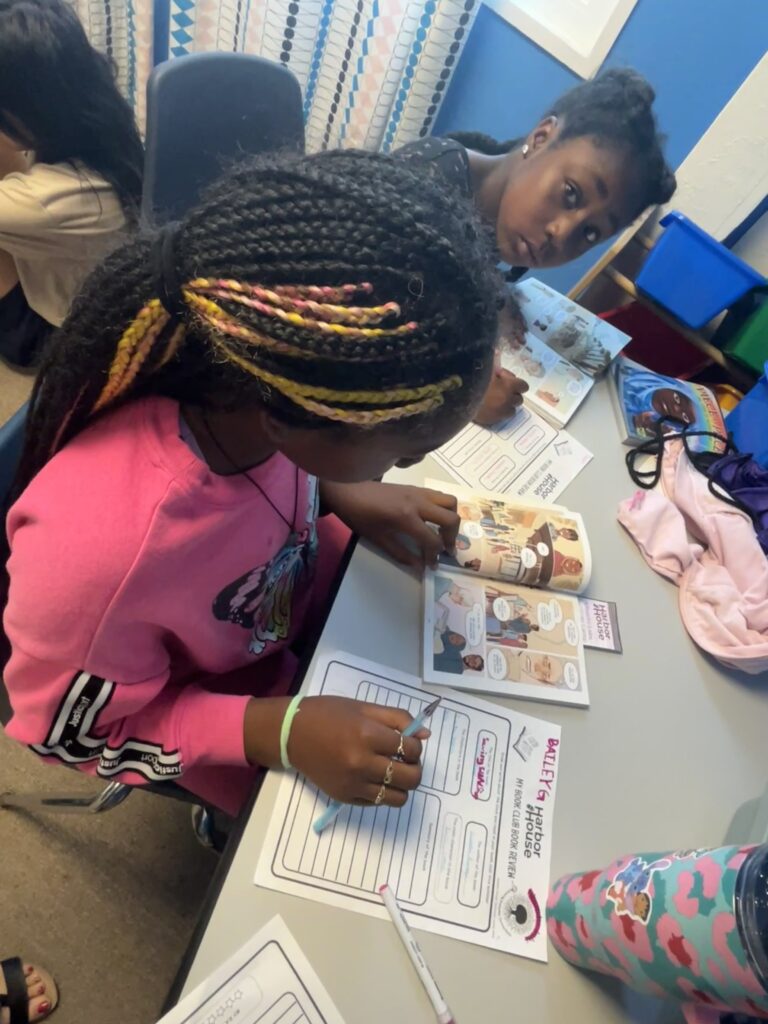
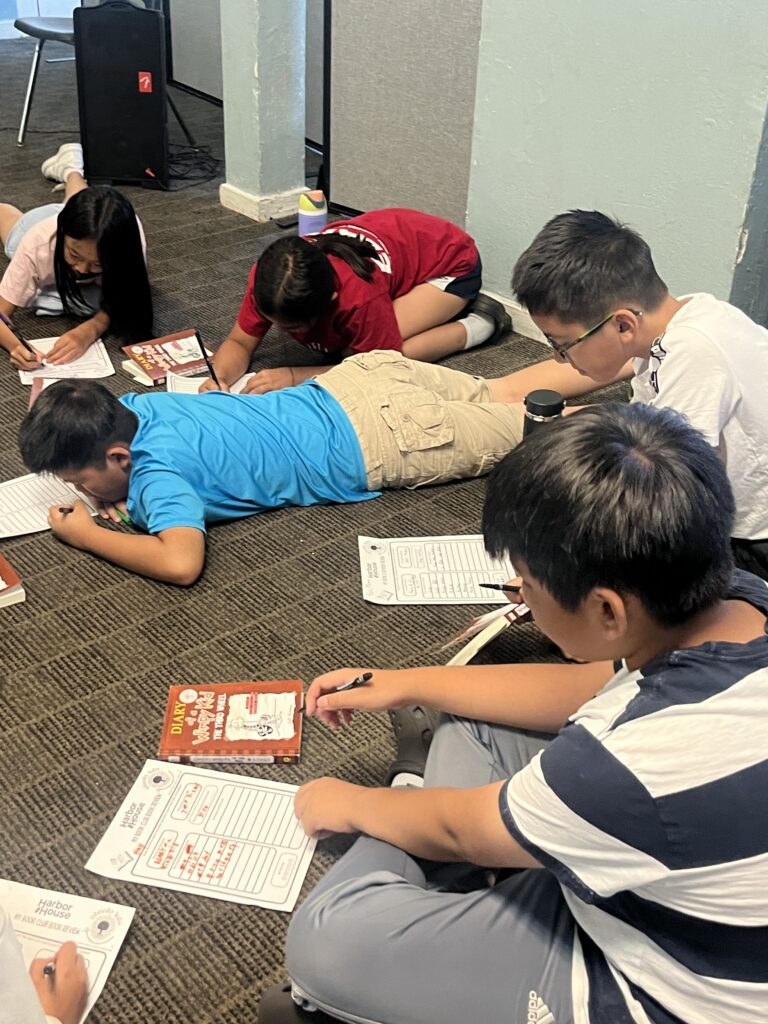
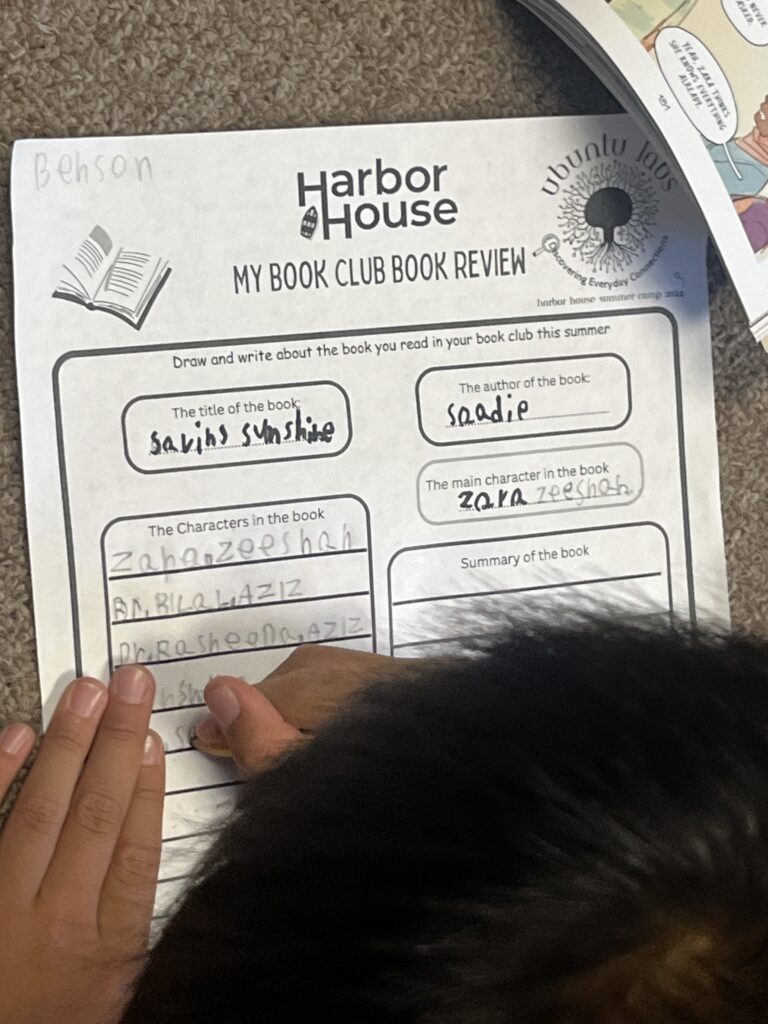
This past summer, I had the privilege of visiting Harbor House, a community development organization in Oakland’s San Antonio district. As a recipient of the Oakland Literacy Coalition’s “Reading Everywhere” Action Grant, Harbor House offers an incredible range of services—after-school programs, leadership development, ESL classes, and even food and clothing distribution. But what really caught my attention was how they used their grant funding to support a five-week summer literacy camp designed for families.
The camp’s theme, “UBUNTU LABS,” was all about exploring the idea of human connection and collaboration. I was immediately inspired by the energy and engagement I saw from the students. Harbor House wasn’t just encouraging kids to read—they were creating warm, inviting spaces where children could truly immerse themselves in stories. It was a powerful reminder of the impact that community-based, culturally relevant literacy efforts can have.
As I walked through the halls with Nicole Ambriz, Harbor House’s Director of Operations, I was surprised to hear the soft strains of a string quartet playing. More than 50 children, ranging in age from 5 to 18, were gathered, listening intently. The music set a peaceful tone that seemed to fill the whole space. Staff and volunteers were amazing—making sure every child felt included and supported, even offering fidgets to help some students focus.
After the music session, the kids grabbed snacks and headed to their book club groups, which were organized by age. Each group was led by either a staff member or a high school intern, and the book selections were thoughtfully chosen to be both culturally affirming and relevant. At the end of the camp, every child got to keep a copy of the book they had been reading, which was a lovely way to extend the experience into their homes.
One of the highlights for me was sitting in on the book clubs. The younger kids listened to a read-aloud, while the older ones read independently or in small groups. I got the chance to chat with two campers who had just finished Saving Sunshine, a graphic novel by Saadia Faruqi about sibling relationships, immigration, and racism. When I asked what they learned, one said, “You can’t judge people because of where they’re from or how they dress,” while the other added, “Don’t judge and just be you.” Hearing those reflections was so heartwarming—it was clear these themes were really sticking with the students.
Harbor House also introduced a new diary project this year, encouraging students to journal about the books they were reading. This gave them a chance to process and reflect on the stories in a deeper way, and I loved seeing how this simple act of writing further connected them to the material.
The Harbor House staff clearly know their students well, creating an environment that fosters engagement and meaningful participation in book clubs. It was evident that they provide everything needed to nurture a love of reading—strong relationships, engaging and culturally relevant texts, cozy spaces, and opportunities for every camper to reflect on the stories they are reading.



